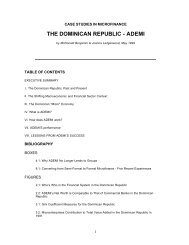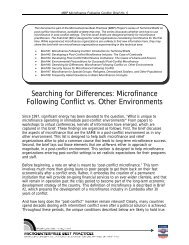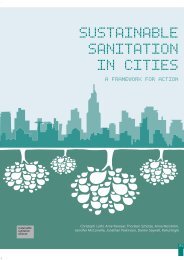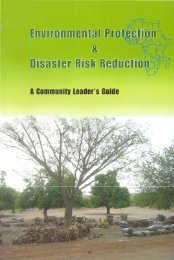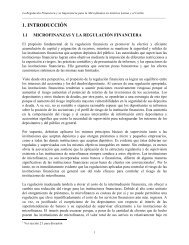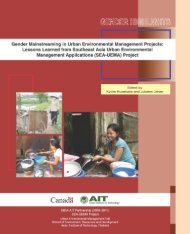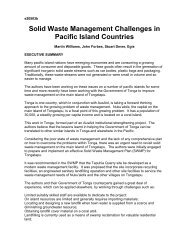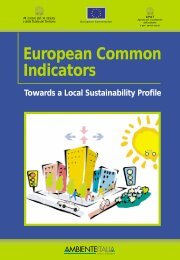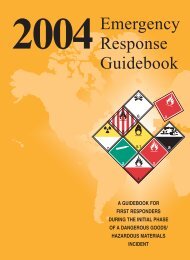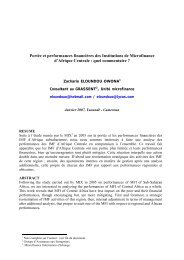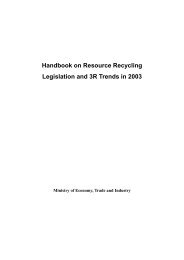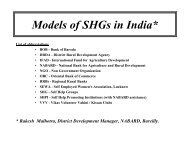The International Implementation Scheme (IIS) - Unesco
The International Implementation Scheme (IIS) - Unesco
The International Implementation Scheme (IIS) - Unesco
Create successful ePaper yourself
Turn your PDF publications into a flip-book with our unique Google optimized e-Paper software.
DESD <strong>International</strong> <strong>Implementation</strong> <strong>Scheme</strong> (<strong>IIS</strong>)<br />
2005 – 2014 in order to underline the importance of concerted action to ensure that patterns of<br />
sustainable development offer a high quality of life to all, both to present and future generations.<br />
<strong>The</strong>y did so also because they saw education as a key – a sine qua non – to sustainable<br />
development. On what was this conviction based? Why is sustainable development so<br />
inextricably bound up with educational processes? It is worth asking the question so that the<br />
grounds for pursuing ESD may be clear and may raise the motivation and commitment of all to<br />
the goals of the Decade.<br />
Various constituencies put differing interpretations on the Brundtland definition: ‘sustainable<br />
development is development that meets the needs of the present without compromising the<br />
ability of future generations to meet their needs.’ However, all such interpretations turn around<br />
the roles and relationships of the actors involved and the measures adopted for achieving<br />
sustainability. Some put the accent on a market-type framework which could involve the trading<br />
of environmental credits – this system is part of the Kyoto arrangements but is yet to be<br />
implemented. Others emphasised the need for a community-based approach in which the<br />
viability and sustainability of communities are the touchstone against which to assess progress.<br />
Still others put the emphasis on the monitoring and further development of international treaties<br />
and agreements in a global perspective.<br />
What is clear from all these interpretations is that concepts of sustainable development are<br />
closely linked to different models of social and economic development. Crucial issues revolve<br />
around the question of who has legitimate access to, control over and use of natural resources.<br />
Thus the human element is central – the rights and responsibilities, the roles and relationships<br />
of individuals, institutions, countries, regions and socio-political blocs are at the heart of<br />
determining the way forward towards sustainable development. To put it another way, it is as<br />
much the social and economic relationships between people and institutions as the relationship<br />
between society and natural resources which will facilitate, or hamper, progress towards<br />
sustainable development.<br />
2.1 Key areas of sustainable development<br />
Before elaborating the particular role of education with regard to sustainable development, it is<br />
important to understand what the key areas of this concept are, as described by international<br />
discourse. Three interlinked areas are most commonly identified within sustainable<br />
development. <strong>The</strong>se are: society, environment, and economy, where political aspects are<br />
subsumed under the heading of society. <strong>The</strong>se three elements, reaffirmed at the Johannesburg<br />
Summit as the 3 pillars of sustainable development, give shape and content to sustainable<br />
learning:<br />
• Society: an understanding of social institutions and their role in change and<br />
development, as well as the democratic and participatory systems which give opportunity<br />
for the expression of opinion, the selection of governments, the forging of consensus and<br />
the resolution of differences.<br />
• Environment: an awareness of the resources and fragility of the physical environment<br />
and the affects on it of human activity and decisions, with a commitment to factoring<br />
environmental concerns into social and economic policy development.<br />
• Economy: a sensitivity to the limits and potential of economic growth and their impact on<br />
society and on the environment, with a commitment to assess personal and societal<br />
levels of consumption out of concern for the environment and for social justice.<br />
<strong>The</strong>se three elements assume an ongoing and long-term process of change – sustainable<br />
development is a dynamic concept, with the recognition that human society is in constant<br />
movement. Sustainable development is not about maintenance of the status quo, but rather<br />
about the direction and implications of change. <strong>The</strong> emphasis on linking poverty with issues of<br />
sustainable development points to the concern of the international community that ending<br />
deprivation and powerlessness is as much at the heart of our concern for the future of the world<br />
14<br />
2005



